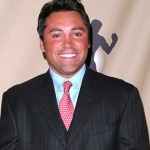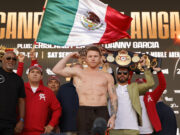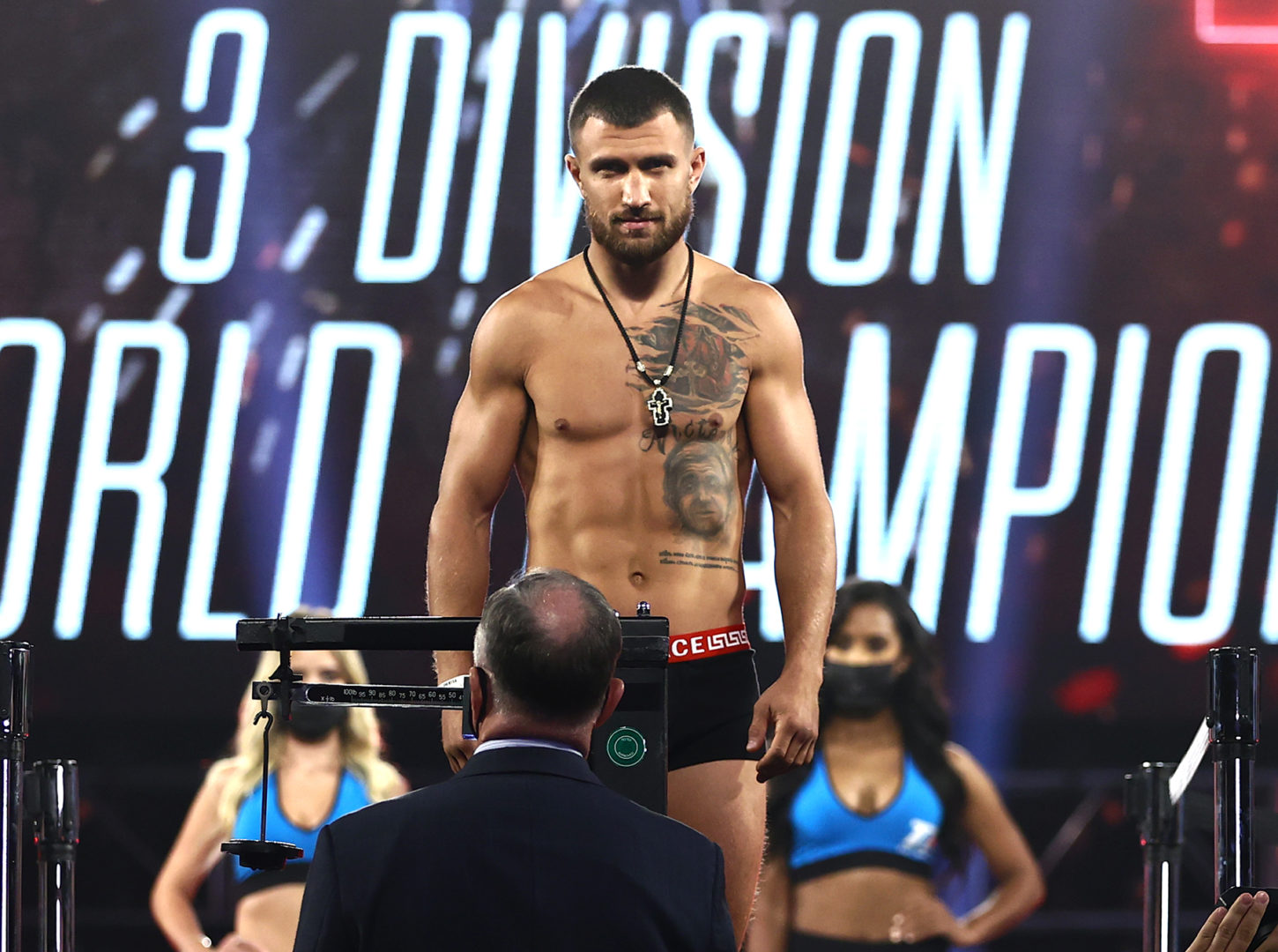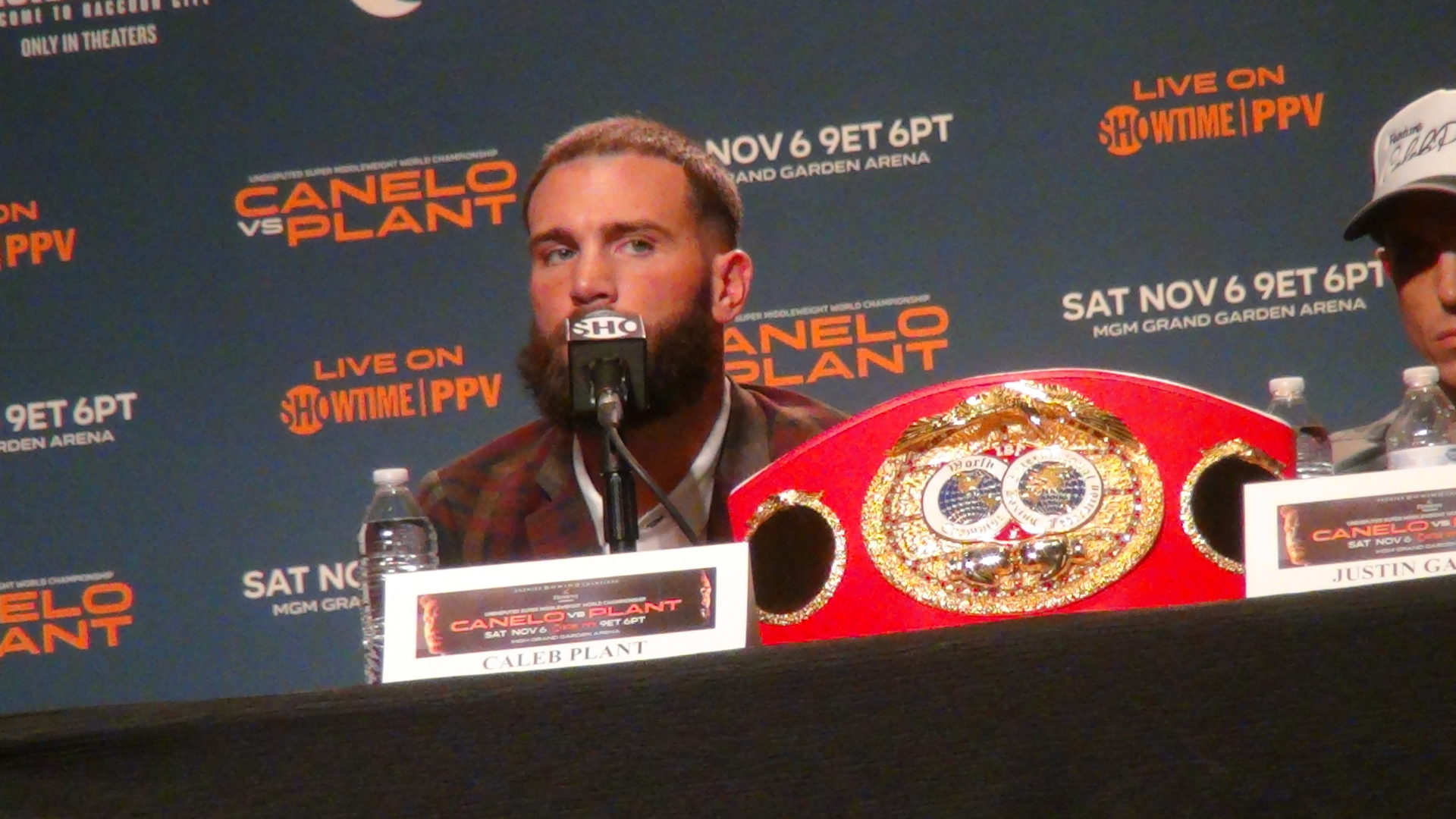
Heretofore, sincerity has not been a hallmark of the Golden Boy brand. Both as a fighter and promoter, Oscar De La Hoya has often used borrowed words to transport his statements someplace other than where his thoughts would steer them. But that changed last week.
In an interview with Broadcasting & Cable, one that was deeper and more honest than anything boxing writers have come to expect from the man or his company, De La Hoya spoke of a desire to take over boxing. He implied all would be better if he were granted sole authority over the sport.
In his words, and despite the semi-retractions that followed, De La Hoya set the truth free. Lacking an adequate lexicon of meaningless expressions, he spoke without his betters’ nuance. Bless him for it.
De La Hoya’s candor brought clarity. Golden Boy Promotions will no longer be able to hide in the silly, one-for-all costume that aspiring monopolists tend to don. And other promoters will no longer be able to make unsatisfactory efforts, lose to Golden Boy Promotions, and then feign victimhood. They now know De La Hoya wants to eat their children – to borrow another fighter’s timely candor.
Oh, but they were taken aback. “Is this not America!” they thundered. Along with a goodish number of commentators, Golden Boy Promotions’ rivals reached for the flag and free market. It was that reaction – indeed reactionary – that made De La Hoya’s unguarded statements provocative.
While some were boning up on MBA-speak in their twenties, De La Hoya was imperiling, and being imperiled by, others. Today, he wishes to obfuscate better than he’s equipped to do. Undoubtedly, he thinks capitalism is just a cool system for making him rich – like most everyone who prays at the altar of the free market. Frankly, you could name the system “potatoes” and not budge their faith.
And then there’s the idea of competition. Does any businessman ever celebrate it until he’s certain of the outcome? Only the winner erects a monument to competition. That doesn’t make it untenable, of course, it just means you should be suspicious of anyone in business who claims to love the idea.
What may well be untenable, though, is capitalism itself. The very system promoters and writers summoned against De La Hoya’s plot last week is what facilitated De La Hoya’s plotting in the first place. Contrary to 30 years of literature on the subject, capitalism is a great destabilizing force that devours itself and eventually puts us all on the same side of the ledger.
So long as one does not openly speak about driving others out of business, though, so long as his only sin is offering customers a better product – with that rubbery definition of “better” stretching to fit any circumstance at all – he is merely a market participant, blameless for the fate of his competition. Everyone purchases his product because he competes and wins, and we’re all better for it. Look at the innovation!
Except that we are not all better for it. Imbalances beget imbalances until no one is left on the other side of a trade. That is why boxing, for all its unscrupulousness and poor execution, still manages to reward 10 percent of its participants with 90 percent of its revenues.
Then it plays the poor ones off against one another, saying that they, too, could be rich one day. Though of course they can’t be.
De La Hoya’s plans for Golden Boy Promotions are not too dissimilar from Todd DuBoef’s plans for Top Rank.
“We need to sign all the talent and get all the TV dates,” De La Hoya said last week. “Then you can have your own agenda and have a schedule for the fans and the sport.”
“In boxing, virtually all of the publicity is keyed to a specific fight and, on a few occasions, to a specific fighter,” DuBoef said in June, by way of explaining a major impediment to his “brand of boxing” concept.
The biggest difference between those two statements? Polish.
Both De La Hoya and DuBoef cite as a model Major League Baseball, an entity which – as Norm Frauenheim pointed out Friday – enjoys an antitrust exemption. How about those animal spirits!
So let’s consider for a moment this “commission” of De La Hoya’s and “brand” that entices DuBoef, while the two men gaze longingly at professional baseball’s model. MLB is, of course, a league. And that league has a union to protect the interests of its employees.
Now ask yourself, is there a boxing promoter in this life or the next who wants prizefighters to unionize?
Until someone can answer yes to that question, let us have no more talk from promoters about being in the business to help fighters. Promoters are in boxing to enrich themselves, and whatever benefits accrue to outside parties are at best ancillary and usually accidental.
The bad news out of last week’s candor from De La Hoya was that nothing is new in boxing. Golden Boy Promotions is not the transformational entity it said it was years ago. The good news, too, is that nothing is new in boxing. There is little chance of one promoter gaining power enough to deal our sport a deathblow.
Whither Oscar’s vision, then? In 2003, columnist George Will ridiculed our President’s rosy prediction by writing: “Iraq needs only four people to achieve post-Saddam success. Unfortunately they are George Washington, James Madison, Alexander Hamilton, and John Marshall.”
Well, Oscar needs only three people to achieve his stated goal. Unfortunately they are Bob Arum, Bruce Trampler, and Lee Samuels.
Bart Barry can be reached via Twitter.com/bartbarry





















